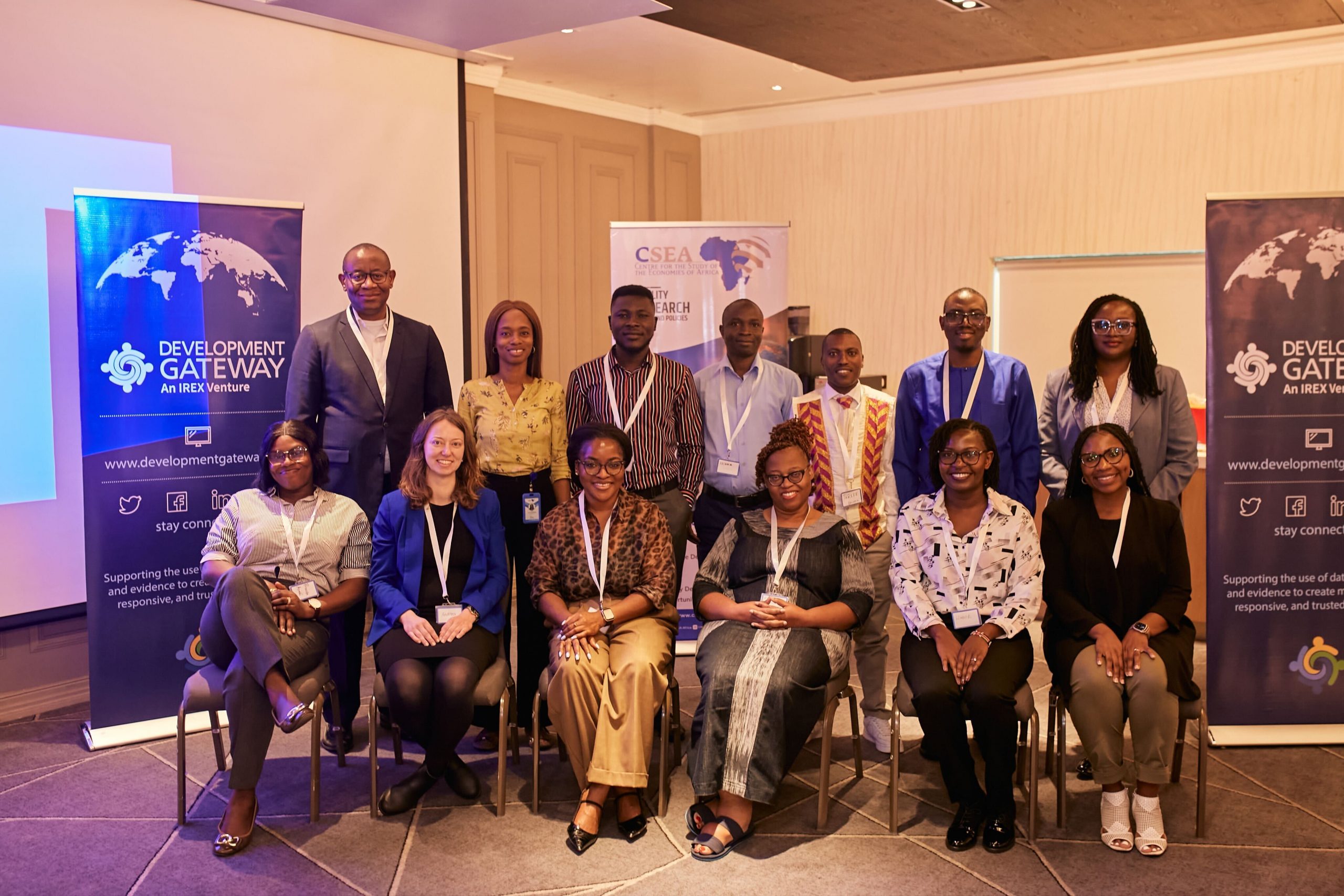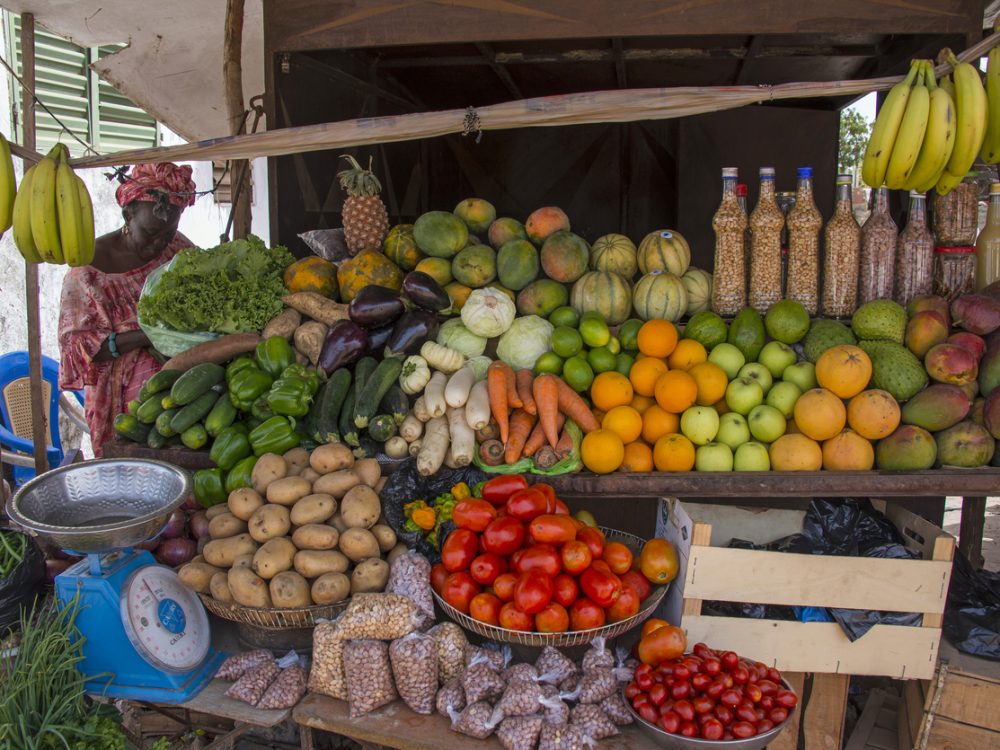
Announcing TCDI 2.0: In Partnership with the Center for the Study of the Economies of Africa
Development Gateway: An IREX Venture (DG) is pleased to announce that following the success of our Tobacco Control Data Initiative (TCDI) throughout the past four years, The Bill & Melinda Gates Foundation has given DG funding for an additional four years in order to implement the second phase of the program: TCDI 2.0!
In part one of this blog, we explored the many accomplishments achieved during TCDI 1.0 as well as a few lessons we learned along the way. In this second part, we’ll detail the scope of TCDI 2.0 as well as our next steps; however, most importantly, we’d like to announce that we’ve chosen the Center for the Study of the Economies of Africa (CSEA) to be our sustainability partner throughout TCDI 2.0. We’re pleased to partner with CSEA on TCDI 2.0 and look forward to advancing the work that was done in TCDI 1.0.
CSEA, which is headquartered in Abuja, Nigeria, has extensive research experience in macroeconomics and public financial management; trade and investment; global economic governance; human capital development; poverty reduction and inclusive growth; environment; and natural resources and energy. Recently, CSEA collaborated with DG to build the capacity of policymakers in different states in Nigeria to better understand tobacco control data.
What was TCDI 1.0?
Launched in 2019, TCDI 1.0’s primary aim was to supply governments, civil society, and academia with improved access to country-specific data to better inform tobacco control policy. The program built individual websites for six countries: the Democratic Republic of the Congo, Ethiopia, Kenya, Nigeria, South Africa, and Zambia. Each website includes country-specific data on such things as tobacco control legislation, tobacco use, and health impacts of tobacco use. This data was gathered from different sources, including primary data collected through TCDI and publicly available secondary data.
TCDI 2.0: Sustainability and Growth
During TCDI 2.0, the three primary goals will be to ensure that the six TCDI country-specific websites developed in TCDI 1.0 are updated with the most recent data, government officials remain a critical stakeholder in using the websites in policymaking, and an African institution manages TCDI by year four. With these goals in mind, TCDI 2.0 will consist of two phases: a mentorship phase and an expansion phase.
Phase 1: Mentorship (Years 1 and 2)
One of the key lessons learned during TCDI 1.0 was that building trust amongst tobacco control partners is crucial in creating a community in which data is not only shared across stakeholders but widely accepted. Specifically, we found that trust is created through continual engagement with stakeholders. Therefore, DG’s priority for the mentorship phase of TCDI 2.0 will be to integrate CSEA within this community and ensure that trust is established between CSEA and our tobacco control partners in each TCDI country.
With that goal in mind, we will facilitate a series of engagements with different stakeholders and CSEA to build connections while also building their capacity on existing programmatic processes. Additionally during this mentorship phase, DG will continue to lead on content updates and conduct primary research on the prevalence of tobacco use in selected locations/provinces/regions in certain TCDI countries (i.e., conduct prevalence spot checks survey).
Phase 2: Expansion (Years 3 and 4)
During phase two, DG will act in a supporting capacity, while CSEA will lead program activities, including updating the existing TCDI websites and expanding into an additional country which will be selected by the end of year two.
Throughout this expansion phase, DG will support CSEA in drawing upon the successful approaches used in TCDI 1.0, specifically by guiding CSEA in employing a user-centered approach in which stakeholders are at the heart of website development. This approach will include involving users in everything from identifying data gaps to reviewing the website content. This user-centered approach will ensure that the data on the new TCDI website meets the stakeholders’ needs and improves users’ interaction with the platform. In this phase, CSEA will conduct the second round of prevalence spot checks.
Next Steps
DG and CSEA recently held a kick off workshop which provided an avenue for both teams to create a foundation for the work over the next four years. The purpose of this workshop was for both teams to streamline their understanding and expectations of the program as well as provide some capacity building on the processes used in the first phase of the program, which will also be used in TCDI 2.0. The team also developed a prevalence spot check protocol that will be used in the two phases of TCDI 2.0.

In the coming weeks and months, DG and CSEA will continue to track the impact of the TCDI websites and data. In TCDI 1.0, impact surveys provided insight on how the data was used and how we could further improve the websites. In TCDI 2.0, we would like to discover the ways in which TCDI has changed activities within civil society organizations, academia, and government policymaking.
As we enter TCDI 2.0, we’re looking forward to partnering more closely with CSEA and deepening and expanding our tobacco control work. Stay tuned for more as the program continues!
Share
Recent Posts

Development Gateway Collaborates with 50×2030 Initiative on Data Use in Agriculture
Development Gateway announces the launch of the Data Interoperability and Governance program to collaborate with the 50x2030 initiative on data use in agriculture in Senegal for evidence-based policymaking.

Strengthening Online Safety Through Prevention in the Philippines
Tech-Facilitated Gender-Based Violence continues to evolve alongside emerging technologies. This blog explores how preventative measures, such as the Safety By Design approach, can be used to create a safer internet.

Preparing Jordan’s Education System for the AI Age
This blog introduces Asas, an early grade education program led by IREX and DG in partnership with Jordan’s Ministry of Education, and explores what AI readiness looks like in early grades and how AI can be integrated safely and sustainably into education systems.